I have never been called shy. Since I was a young kid, I’ve always had a thing for putting on a show. Whether it was an impromptu theatre performance at a family party or a much-rehearsed dance recital starring my sister and me, being in front of an audience is something I love.
This past summer I decided to get back into my stage game by joining a performance-based improv program (meaning it was one part class, one part live performance). I hadn’t been on a stage or worked with a group of outgoing, goofy and eager students since college. It was nerve-wracking and exciting all at once.
I knew this program would be a great exercise for my creative and writing muscles, but what I didn’t expect was the impact it would have on my work mentality. Some lessons are purely relevant to the improv stage, but most are extremely relevant to any work environment (especially a branding and marketing agency).
So whether you’re a master thespian or 9-to-5 worker bee, these four lessons from improv won’t steer you wrong.
1. Support your team.
Some of the most tragic or awkward moments of improv occur when castmates don’t support one another. I’ve not only seen this firsthand, I’ve been on the stage when it happened…and it’s brutal. So how do you support your castmates or team? You keep the momentum moving forward. This can be done in the form of the basic improv principle “Yes, and…”, which means never shutting down an idea of your castmate, but instead accepting and building off it. In the office this might translate to popcorning off your coworkers ideas, instead of bashing them to the ground. Just as a stagnant scene is a certain death, an idle brainstorm is a cloud of doom.
https://www.youtube.com/watch?v=wPOgvzVOQig
2. It’s okay to look idiotic.
In my opinion, this is handy advice for life. When you’re too uptight or self-conscious about what you should say or do, you often hold yourself back from pure brilliance. My moments of self-doubt or overthinking have led to some of my more awkward scene displays. And yet, when I completely let loose and didn’t really care about looking ridiculous, it was funnier and more genuine—making it a better performance.
https://www.youtube.com/watch?v=6Z7_ryqm6yg
3. Louder isn’t always better (or funnier).
We’ve all seen it. The person on stage or screen who just yells over everyone else, AKA the Tracy Morgan effect. Note: the level of your voice does not correlate with the success of your scene.
Yes, sometimes a louder tone fits the scene and adds to the momentum, but usually it just comes off as pointless belting. (Which is really uncomfortable and hard to follow for the audience.) This is especially relevant in branding and marketing. Why? Because your brand doesn’t need to scream in order to be heard.
We often hear clients say they want to be loud, but my question is: Does “loud” fit your brand’s identity? Don’t just be loud for the sake of being loud. Have intention and purpose with your decision. If it adds to the quality of your brand, go for it. If not, you’re just yelling for no reason.
4. Die a grand death.
If people come to see you perform and you die, you better make that death worthy of the ticket price. In other words, go big or go home. No one wants to see a wimpy, forgettable death (especially after they’ve taken time and money to come see you), so give the audience what they want. A big, over-the-top, guts-exploding-from-your-body death. You really do owe it to them. And when it comes to the workplace, the moral remains true: give your audience what they want and make it memorable.








